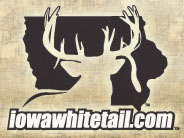ElkHunter
Life Member
Please contact your legislators about H-45. Could go into detail, but all I'll say is FB supports this section:grin:
HF 45—REAL PROPERTY ACQUISITION CURTAILED
HF 45, division IV, contains a provision that forbids the Department of Natural Resources (DNR) to enter into a new arrangement to acquire or otherwise control real property upon enactment, except donated property.
Benefits of DNR Lands
Jobs, Recreation, Economy Boon
- Recreation on natural areas is a significant economic anchor in Iowa. Hunters, anglers and wildlife viewers spent $974,000,000 in retail sales in Iowa, creating and supporting more than 17,800 jobs and creating a total economic benefit of $1.54 billion.
- Visits to Iowa’s state and county lakes, parks and trails translates to 50 million visits, supports 27,400 jobs, and generates statewide spending of $2.63 billion. (“Economic Value of Iowa’s Natural Resources”, ISU, Center for Agricultural and Rural Development.)
- Each acre of public wildlife area generates $402 annually in economic activity.
Meeting the needs of Iowa’s agricultural interests and outdoor enthusiasts
- All DNR-owned lands are purchased only from willing sellers. Typically, landowners have wanted the DNR to purchase the lands to set aside for flood plain management and recreation.
- DNR public lands represent natural areas considered marginal land for agricultural purposes, with a very low average CSR (corn suitability rating) of 32.1.
- Less than 1% of the lands and water acres of Iowa are under protection by the DNR.
Fiscal Impacts
No real savings
- Most land is acquired with federal dollars, which would otherwise be spent in other states.
- The DNR uses no General Funds for land acquisition; buys only from willing sellers at or below the appraised fair market value.
- The REAP Open Spaces fund allocated to the DNR is specifically mandated to be used for open space protection and for the development of parks and facilities. There are requirements within this fund that include a percentage for cost-sharing with private conservation organizations; a percentage for the Protected Waters Area program; and a percentage that goes to pay local property tax payments. The DNR pays annual property taxes to Iowa counties. In FY 11, the DNR paid $690,000 in local property taxes. If the DNR was prevented from using these funds for land, the money would be allocated for park and facility development projects and to pay property taxes on existing state lands. There would be no savings to the state of Iowa.
· DNR manages 130,000 acres of land under lease agreements with federal or local governments. These lease agreements let the DNR manage lands adjacent to forests, parks, wildlife management areas, preserves and fisheries, providing for more public recreational opportunities , natural resource management, and access. The language would prohibit additional leases, including renewals, which typically happen every 5-10 years.
· DNR often procures temporary construction easements or flooding easements from willing sellers to access property, to construct roads or buildings, to improve wildlife habitat (i.e., wetlands) or to improve water quality in lakes, ponds and streams. This law would delay that practice and that capability, thereby impacting a number of management efforts and construction projects.
· The law would temporarily stop the very successful conservation easement program where the DNR acquires only the conservation value of certain tracts of land, of which many are donated. Much of this work is done in partnership with the Iowa Natural Heritage Foundation, Ducks Unlimited, Pheasants Forever, etc. A conservation easement lets landowners remain in ownership of their land, while ensuring permanent conservation protection. Conservation easements assist in protecting and improving water quality, wildlife habitat and natural resources in general. Conservation easements have been an especially valuable tool in protecting trout fisheries in cold water streams and in matching some federal and conservation programs as well as those managed by the partners above.
· Landowners would have new responsibilities for site clean-up. The DNR allows owners of certain lands to avoid some clean up of the site provided they agree to restrict the use of the land to minimize harmful effects. For example, if a landowner has some contaminated groundwater, that person may execute an environmental covenant with the DNR to prohibit wells. This is often used for leaking underground storage tanks and other contaminated sites. When the DNR holds one of these covenants, this means the DNR has a legal property interest on the ground/site in question. Under this law, this would not be allowable and the DNR could not offer this service to landowners.


